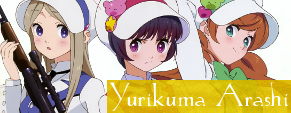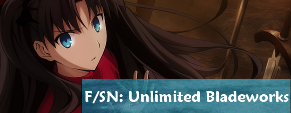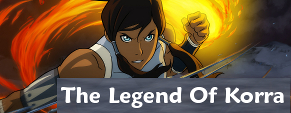3-gatsu no Lion – 01-04 Review

One of the series’ strengths is to tell so much visually instead of just offering bland backgrounds for characters telling you what’s going on.
3-gatsu no Lion 01-04: Rei is a genius-Shogi-player (is there any other kind when you’re an anime/manga-protagonist…?) and he becomes sort-of a part of an unusual little family-household. Hilarity ensues!
Well, sometimes things get serious, too.
Actually, it’s a pretty good series if that didn’t sound like a good pitch.
Review:

I wonder if this will start to bug me at some point… but so far it’s amusing how much characters desperately try to draw comparisons between their lives and mangas (when in reality something else entirely is going on).
And so, from award-winning manga-author Chico Umino (best known for Honey and Clover) comes another award-winning manga-series about difficult people with difficult problems just trying to get by. Of course, that’s all fine and dandy but wait till you hear this: Shaft is adapting this manga – and Shinbo isn’t involved! I bet when the people at Shaft heard they were supposed to adapt this series, their first question was “3-gatsu no Lion… Is that like, a Monogatari-spinoff?”.
But enough about that… I can honestly say that 3-gatsu no Lion is my favorite series of this season right now. The simplest way to describe the series is to call it “Slice-of-life done right.”. Both in how character-focused the stories are and in how much the series has something to say about life the series already puts itself into a position where it can effortlessly change tone, focus and pacing. While the worldbuilding is serialized in how characters meet other characters and develop their attitudes, the plot mostly remains episodic and what connects the two is Rei’s narration as well as an insightful direction that is willing to let its imagery speak for itself (it’s insane how many series don’t do that).
The last part is very important in why this adaptation isn’t just drawing strength from the good source-material. Take the beginning of the first episode where Rei is playing against his step-father. The audience doesn’t know who the characters are, how they’re related and what the stakes of that scene are. But the way the two interact tells the audience SO MUCH about what’s going on. And it doesn’t explain everything in that moment, either. To have the patience to explain just enough to give you a basic understanding of the scene while leaving other details for later is exactly what all storytelling should aim for! You don’t want to burden the audience with an infodump (think of every shounen-series that opens with lengthy narrations about what their setting is…) – but you also shouldn’t leave your audience in the dark (every show that wants to dazzle the audience with “Something’s going on – but I’m not gonna tell you what… until the very end!”). By just offering an entry-point to the scene and hinting at a deeper subtext, the scene actually becomes intriguing. And that makes it the perfect opening-scene of a series!
Although the manga already had some visual motifs of its own (Rei’s connection to the river and water in general, for example), the anime can depict these differently if not better. Colors are an important element here as the series often shows the coldness of Rei’s world when he’s alone. But the home of the Kawamoto-family is full of warm colors and Rei stands out in any scene with the black-and-white-color-scheme of his character. And the way the animation presents these visual motifs helps the audience understand the subtext of the series which in turn eases the burden of the dialogue to explain everything. It’s stuff like that where a series can finally achieve a proper balance to deal with heavier, more serious topics without looking ridiculous.
The series’ story follows Rei who’s a great Shogi-player and whose difficult past has made him a lonely person. This changes however as he enters the lives of the Kawamoto-family (who have their own share of troubles). The most central theme of the series is family, therefore, and a lot of the series does deal with Rei essentially acting like a member of the Kawamoto-family. What’s interesting here is that the series’ discussions about family aren’t about a traditional family working well. If anything, both Rei and the Kawamoto-family have lost their chance to have a “normal family”. So, the idea of “family” is much broader in this series and this leads to the glue that holds everything together in the series: Compassion.

Yeah, this series loves saying “It’s like in a manga.”…
There isn’t one character in this series who isn’t a difficult person with difficult problems. And it has led to a cast of characters you rarely see in animes. For example, Akari’s evening-job as hostess is neither scandalized nor eroticized. It’s just another facet of her character that she does that job and if anything, the series remarks upon the stark difference between the hostess Akari and the Akari at home. And Nikaido (who is apparently based on a real person) as an overweight, rich, passionate Shogi-player with a chronic illness defies any stereotype. The series has got a great cast of characters. But this isn’t because it tries to deconstruct/defy any stereotypes or genre-traditions. It’s just by virtue of a very individualized characterization (ie, no character is easily defined but has multiple layers).
As I said, compassion is what connects the characters and there are multiple ways this expresses itself in the series. But what the compassion is aiming for is all the characters’ balance-act between purity and vulnerability. While purity is the individual’s ability to function, and contribute as a member of society, vulnerability is the danger each individual deals with when an attempt at self-discovery and emotional honesty is made. And when things go well, the individual can inhibit a social environment that ideologically resembles the concept of “family”. But when things go bad, it’s about characters rejecting their connection to other people out of selfishness, fear or lack of empathy. The compassion that guides the characters in this series is as much about figuring out what to do in life as it’s about who’s at their side when they figure things out.
One such way the series expresses this is whenever situations or characters are compared to stereotypes in animes and mangas. More than being referential jokes, it’s about communicating empathy. Whenever Nikaido uses his exaggerated manga-stereotypes for what his relationship with Rei is, the underlying message is that in essence, but not in interpretation, he’s right. What Nikaido embellishes is just his acceptance of Rei as a friend. And what connects them isn’t really the rivalry as Nikaido claims but Rei’s compassion for Nikaido’s struggles.
The contrast to that and what shows off the bad side of that struggle is Rei’s past. After losing his parents, he obsessively studied Shogi while shutting everything else out. And how this has created a lack of compassion is shown in one scene where Hinata is crying about her mother at the riverside while Rei’s thinking about how he had given up on crying for his parents and even now he can’t do so. Connected to that are various mentions in the Kawamoto-household of how they remember the dead (it isn’t just that those are Japanese traditions but the way they’re talking about them which makes it meaningful).
All in all, 3-gatsu no Lion is a compelling series that excels with its characterization and its ability to gracefully deal with heavy topics (without being sappy). In addition to that, the series is a really good anime-adaptation as both the strengths of animation and visual direction can add to the inherent strengths of the source-material. So far, it’s the best series of this season, I think.
Episodes-Rating: 9/10
Random Thoughts:
- There’s also a live-action-movie-adaptation coming out in 2017… They really don’t know moderation in the entertainment industry, do they…?
Posted on November 4, 2016, in 3-gatsu no Lion, Anime, Reviews and tagged 3-gatsu no Lion, 3月のライオン, Anime, March comes in like a lion, review, Sangatsu no Lion. Bookmark the permalink. 3 Comments.


















woah, woah …. 9/10 ..
that episode must be gold.
watching it asap
LikeLike
Reblogged this on The Wanderer.
LikeLike
Pingback: Download Mkv Movie Player – Movietvchannel.com